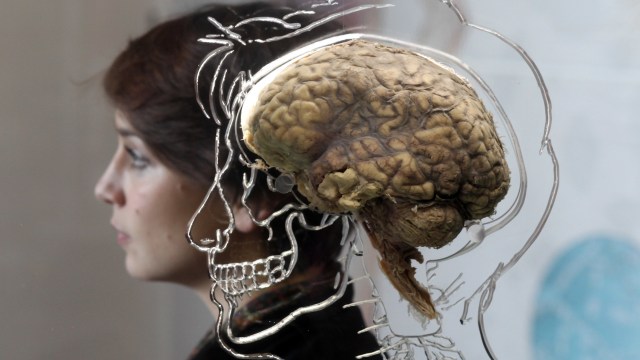The benefits of a good apology and how to make one

Photo by Suzy Hazelwood from Pexels
- No one likes to admit they were wrong, but we still have social norms that suggest we all do it from time to time.
- A well done apology can show respect, build trust, save relationships, and maintain your self-esteem.
- Saying “I’m sorry you feel that way” does not count.
Let’s be real, apologizing can be difficult. Nobody likes to admit that they were in the wrong, mistaken, or that they offended somebody. However, we still have agreed-upon ways to acknowledge that we did something wrong and to express our remorse to others. Furthermore, when you think about it, apologizing is one of the psychologically healthiest and most positive actions you can take when unpleasantness arises.
According to psychotherapist and author Dr. Beverly Engel, an apology does more than just express politeness; it is “an important social ritual, a way of showing respect and empathy for the wronged person or persons.”
When you’ve harmed someone, a genuine, well-given apology demonstrates that you care about them, validates their emotions, allows you to take responsibility for your actions, rebuilds trust, and prevents the further deterioration of relationships. It can also help you avoid the shame and guilt of wronging someone from eating away at your self-esteem.
As Dr. Engel explains, “Apologizing to another person is one of the healthiest, most positive actions we can ever take—for ourselves, the other person, and the relationship.
Plenty of experts agree with her. Wellness coach Elizabeth Scott argues that apologies let other people know that you understand what you did was wrong and helps everyone move forward after a conflict. Dr. Denise Cummins highlights the affirmation of humanity present in apologies and points to data showing that the negative consequences of apologizing are often overstated.
Professor Allison Stanger of Middlebury College agrees and reminds us in her Big Think interview that a good apology creates suitable environments for learning and that needing to apologize for something doesn’t make you a bad person:
“Human beings have blind spots. They have implicit biases. This doesn’t mean you’re a bad person. We all have them. And I think it’s an illusion to think we can eradicate them from human beings. And this relates to civil discourse because it’s important that people be allowed to think out loud and make mistakes because, particularly in diverse work environments, diverse college classrooms, people are going to come from different backgrounds, and they will say things that may offend someone. And there, I think it’s extraordinarily important that we tell our students, that this may happen, but it’s immensely important that if you offend someone inadvertently that you apologize and say ‘That was not my intention.’ And then hopefully we can move on.
In my classroom, I do this, I say, I want you to speak freely. I don’t want you to censor yourself. But if anybody feels offended, they should speak up because that’s not a good classroom environment, and we apologize, and we move on. And I think this is a really simple truth that apologizing and moving on is a real foundation for moving forward.”
Learn to Forgive Because Bitterness is Bad For Your Health
A proper apology should express your understanding that you’ve done something wrong. Telling someone “I’m sorry you feel that way” if they do indeed have a legitimate grievance is not merely an inadequate apology, but it is also patronizing. Furthermore, it is an ineffective way to apologize. You should also beware of over apologizing; it can have negative effects too. Try only to make an apology when the situation calls for one.
As Rutgers professor Karen A. Cerulo explained in an interview with Freakonomics, an effective apology has several elements:
“Number one: don’t wait. Forget your ego, forget the advice of your handlers. Unless you’re involved in a legal situation, where you’re advised not to speak, you should make an apology right away. Second, don’t apologize for what people thought. In other words, we’ve often heard people say, ‘I’m sorry that people misunderstood me; I’m sorry that people misinterpreted or misread my actions.’ Apologize for what you did — not for what other people might have thought about it.”
The third and fourth elements, according to Cerulo, are to not provide context as a way of explaining away your behavior, and to identify victims up front so that you can express remorse and make restitution when possible.
Dr. Ben Ho, an associate professor of economics at Vasser College, adds that people often want to see an apology that costs something. This cost doesn’t have to be financial, though it can be, but can come in the form of admitting your incompetence in making the previous error or promising to do better in the future.
The results of a weak apology on the people you’re apologizing to are easy to imagine. Try to recall how you felt the last time you saw somebody apologizing for getting caught rather than for what they did. It neither satisfies the offended party nor paves the way for personal growth on the part of the person who did something wrong. On an individual level, we all know the feeling of getting an insincere apology from somebody who promptly went back to the behaviors that they just “apologized” for; it reduces your respect for them and makes you feel rotten.
On the other hand, a sufficient apology can achieve great things. It can heal the harmed, change how we view somebody who did us wrong, create opportunities for forgiveness and growth, save relationships, and help us do better in the future.
While the most effective apologies often incur a cost to our status or require us to be better in the future, these can often be minor compared to the benefits of a proper apology.
So, go ahead, apologize a little more often for the things worth apologizing for- but be sure you mean it.
Have you accidentally offended someone? Here’s advice for you and them.





